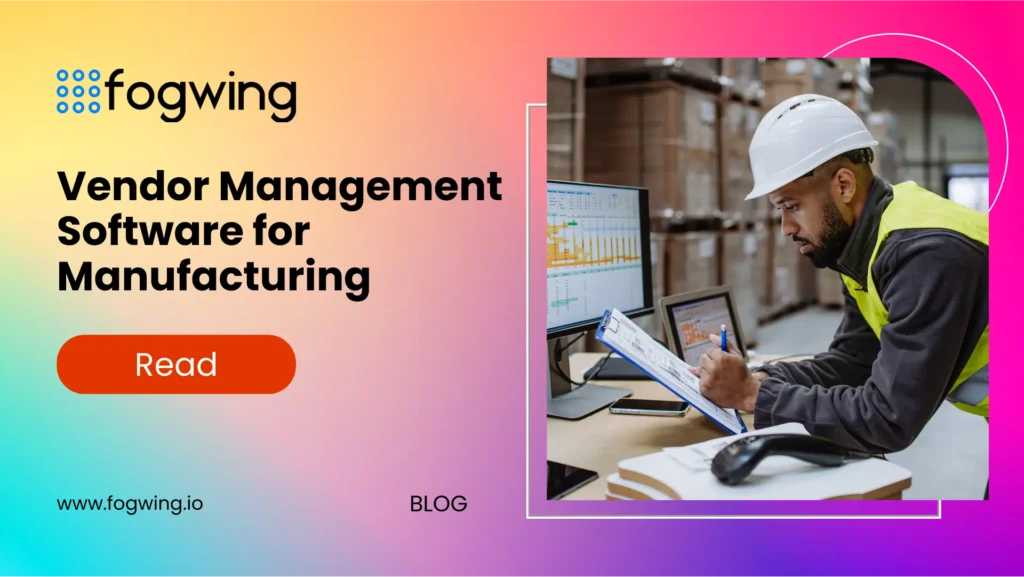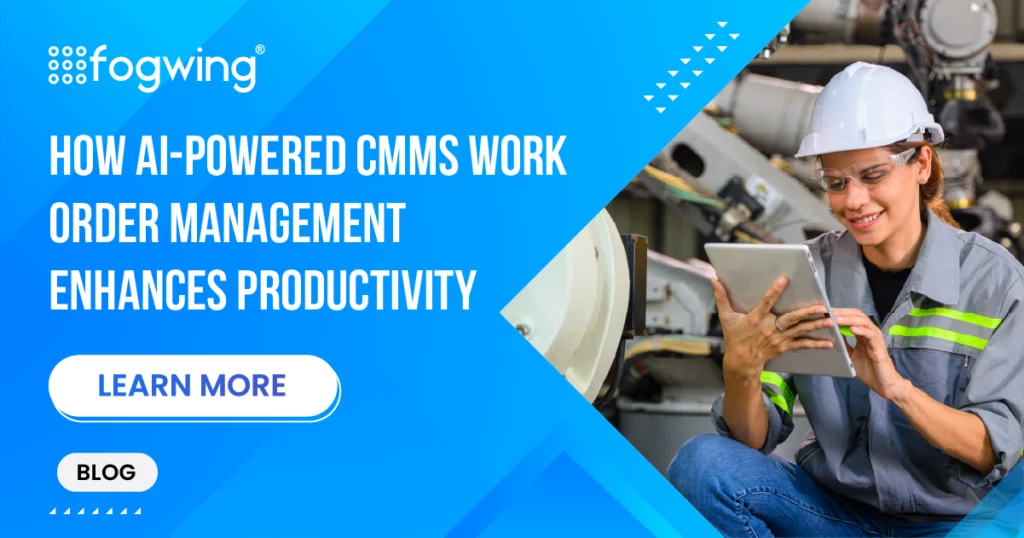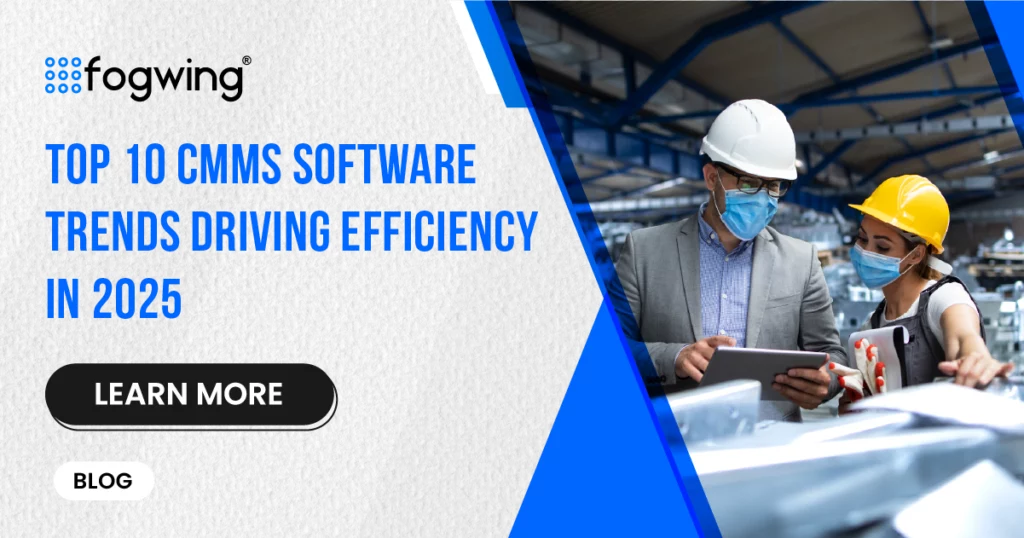In a fast-evolving and dynamic manufacturing landscape, operational and productional efficiency hinges significantly on effective vendor management systems. So, integrating vendor management software features into your manufacturing business emerges as the ultimate game-changer.
This blog explores the impact of vendor management software, specifically catering to the needs of small businesses, streamlining the supply chain, enhancing vendor relationships, and the significance they hold in managing vendor contracts and overall supplier relationships. Discover the technology’s critical role in optimizing vendor interactions and ensuring operations in today’s competitive market.
What is a Vendor Management Software?
Vendor Management Software (VMS) is a platform designed to facilitate and streamline the entire lifecycle of vendor relationships within an organization. Vendor management includes selecting, onboarding, managing, and evaluating vendors. It also helps negotiate vendor contracts, control costs, and reduce vendor-related risks.
VMS enhances efficiency, improves compliance, and reduces risks by centralizing vendor data and automating processes. Key functionalities typically include contract management, performance tracking, compliance monitoring, and analytics. With robust vendor management software, businesses can ensure they get the best value from their vendors while maintaining strong, transparent, and productive relationships.
Vendor Management & its Importance in Manufacturing
Best Vendor Management Software manages and optimizes an organization’s relationships with suppliers or vendors. This process is critical in the manufacturing sector because of its complexity and scale.
Effective vendor management ensures the sourcing and managing of vendors who provide a constant supply of quality materials, fosters strong supplier relationships, and mitigates risks associated with supply chain disruptions.
By implementing a robust vendor management strategy, manufacturers can achieve cost efficiencies, maintain production schedules, and enhance overall operational resilience. Additionally, it helps them to maintain compliance with industry standards and regulations, contributing to sustainable and ethical business practices.
How Vendor Management Software is transforming to become Industry 4.0 Ready?
With the onset of Industrial 4.0, manufacturing industries worldwide are adjusting to the technological requirements of Industry 4.0. The Vendor Management Software is also evolving to meet the demands of Industry 4.0 by integrating advanced technologies and features that enhance efficiency, transparency, and collaboration in the supply chain.
Here’s how VMS is becoming Industry 4.0-ready:
Integration with IoT and Smart Devices:
Vendor management software features now incorporate IoT sensors and smart devices to collect real-time data on inventory levels, shipments, contracts, and supplier performance. The data collected by the connected devices can be analyzed, and the VMS can predict potential issues and schedule maintenance proactively, reducing asset downtime.
Artificial Intelligence (AI) and Machine Learning (ML):
ML and AI algorithms analyze vast volumes of vendor data, such as reordering supplies or selecting based on past performance, to detect patterns, estimate future vendor performance, and facilitate strategic decision-making.
Machine Learning models of the Best Vendor Management Software predict risks and suggest mitigation strategies by analyzing patterns and anomalies in supplier performance.
Blockchain for Enhanced Transparency:
Transparency and trust are critical in the tech-driven manufacturing environment, especially in vendor management. Blockchain technology enhances vendor management software by providing an immutable, decentralized ledger system. It ensures secure and immutable records of transactions, fostering trust between manufacturers and vendors.
Additionally, the Best Vendor Management Software technology provides end-to-end traceability of goods, enabling businesses to verify the origin and authenticity of products. Every step in the supply chain is recorded on the blockchain, providing complete traceability of materials and products from origin to final delivery.
Advanced Analytics and Reporting:
Industry 4.0 technologies enable Vendor management software to offer advanced analytics and customizable dashboards that provide insights into supplier performance, cost trends, and supply chain efficiencies. The technologies also allow for capturing and analyzing massive amounts of data from numerous sources.
The best Vendor Management software can be used to gain insights regarding vendor performance, risk, and compliance. The manufacturers can leverage detailed reports to develop data-driven strategies for supplier management and process optimization.
Cloud-Based Solutions:
Cloud-based vendor management software features offer scalability and flexibility, allowing manufacturers to expand their operations without significant IT overhead. Organizations can access the VMS from anywhere by leveraging the cloud, ensuring real-time updates and team collaboration.
Cloud vendor management software provides robust data storage and security, eliminating the risk of data breaches and loss. Additionally, it provides seamless integration with other software, enhancing workflow efficiency.
Cloud platforms also facilitate real-time collaboration between manufacturers and suppliers, streamlining communication and coordination. Cloud-based vendor management software for small businesses enhances operational efficiency, reduces costs, and improves vendor transparency and performance tracking.
By embracing these advanced features, Vendor Management Software is enhancing current operational efficiencies and paving the way for the intelligent, interconnected, and data-driven manufacturing environment that defines Industry 4.0. This transformation helps manufacturers stay competitive, agile, and resilient in an ever-evolving industrial landscape.
Vendor Management Software Features
In supply chain optimization, vendor management plays a strategic role. Here are some features of the best vendor management software that can contribute to the supply chain optimization:
Vendor Onboarding:
Onboarding the right vendors is the first step toward supply chain optimization. The vendor management software for small businesses simplifies adding new vendors with automated workflows, ensuring they meet compliance requirements.
Manufacturing companies assess potential vendors based on various criteria such as delivery capacity, quality standards, financial stability, and commitment to sustainability. A strategic approach to vendor selection leads to long-term partnerships that offer mutual benefits. It ensures that the vendor meets the required standards.
Performance Tracking:
The performance tracking feature of vendor management software enables businesses to monitor and evaluate vendor performance through key metrics and analytics, allowing them to make informed decisions and improve relationships based on reliable data.
The feature provides real-time insights into various activities, like product quality, delivery times, contract compliance, and overall reliability. Performance tracking facilitates transparent communication and accountability, fostering more robust and productive vendor relationships while ensuring alignment with business goals.
Contract management:
The contract management features centralize the storage, management, and tracking of vendor contracts, ensuring adherence to contract terms and timely renewals and that all agreements are easily accessible and well organized. It minimizes the risk of non-compliance while managing vendors.
Contract management in vendor management software enables organizations to automate the contract lifecycle, from creation and negotiation to approval and renewal. Streamlining the contract management process reduces the administrative burden and risk of non-compliance.
Risk Management:
Vendor Management Software helps manufacturers proactively identify and reduce risks associated with the vendor or supplier relationship by offering continuous monitoring and assessment to ensure supply chain stability. The Risk management process in VMS provides constant monitoring and evaluation tools.
Vendor management software for small businesses addresses risks like non-compliance, supply chain disruptions, and financial instability. The systematic approach to risk management enables the company to implement effective mitigation strategies, safeguard against unexpected risks, and maintain resilient and reliable vendor relationships.
Invoice and Payment Processing:
Vendor Management software’s invoice and payment processing feature streamlines the financial interactions between businesses and their vendors. The automotive approval of invoices and payment processes reduces errors, accelerates payment cycles, and enhances financial accuracy.
The feature automates invoice generation, submission, and acceptance, reducing manual entry errors and accelerating payment cycles. It ensures that all invoices comply with agreed-upon terms and conditions and provides real-time tracking of payment statuses. By improving accuracy and efficiency in financial transactions, this feature helps maintain positive vendor relationships, reduces administrative overhead, and enhances overall financial control.
Compliance Monitoring:
Vendor management software for small businesses helps manufacturers automatically check whether vendors adhere to regulations and company standards, ensuring ongoing compliance and reducing the risk of legal issues. Compliance monitoring continuously tracks and audits vendor activities, highlighting deviations from compliance standards.
By automating the compliance check, vendor management software saves time and reduces human error. This systematic approach protects the organization and fosters trust and reliability between the business and its vendors, ensuring a stable and compliant supply chain.
Integration Capabilities:
Vendor management software integration capabilities allow seamless connectivity with various enterprise systems such as ERP, CRM, and CMMS. This feature enables real-time data sharing and synchronization across platforms, ensuring all departments access up-to-date vendor information. Integration enhances efficiency by automating workflows, reducing manual data entry, and minimizing errors.
It also provides a holistic view of vendor performance and relationships, facilitating better decision-making and strategic planning. Businesses can optimize operations, improve communication, and enhance overall vendor management processes by leveraging integration capabilities.
The Challenges of Vendor Management
1. Maintaining Data Accuracy: Ensuring up-to-date and accurate vendor information can be challenging, especially with multiple vendors and frequent changes in vendor management software companies.
2. Risk Management: Identifying and reducing risks associated with vendor performance, financial stability, and compliance is complex and requires continuous monitoring.
3. Compliance: Adhering to regulatory requirements and ensuring all vendors comply with industry standards can be resource-intensive and difficult to manage.
4. Communication: Maintaining clear and consistent communication with vendors is essential but can be hindered by time zone differences, language barriers, and varying communication channels in vendor management software features.
5. Performance Monitoring: Robust systems and processes must consistently track and evaluate vendor performance to meet contractual obligations and quality standards.
6. Integration with Existing Systems: Integrating vendor management software with other enterprise systems (ERP, CRM, CMMS) can be technically challenging and require significant resources.
7. Cost Management: Controlling costs and ensuring vendor services are cost-effective without compromising quality or performance is a persistent challenge.
8. Vendor Relationship Management: Building and maintaining solid relationships with vendors is essential for long-term success but requires ongoing effort and strategic planning in vendor management software for small businesses.
9. Scalability: As businesses grow, scaling vendor management processes and systems to accommodate more vendors and increased complexity can be daunting.
10. Data Security: Ensuring the security and confidentiality of vendor data, especially when dealing with sensitive information, is critical and requires robust cybersecurity measures.
The Role of Vendor Management in CMMS Software
Vendor Management Software (VMS) is revolutionizing Computerized Maintenance Management Systems (CMMS) by enhancing vendor-related processes and improving overall maintenance operations.
Here’s how VMS is integrated into the Fogwing CMMS platform:

1. Streamlined Vendor Relationships
Centralized Database: The Fogwing CMMS platform offers small businesses vendor management software with a centralized database for storing vendor data, including contact details, Contract details, and performance history.
Improved Communication: Fogwing CMMS Platform facilitates seamless interaction between maintenance teams and vendors, ensuring timely updates and responses.
2. Enhanced Procurement Processes
Purchase Order Tracking: Vendor management software helps the maintenance team generate and track purchase orders for maintenance supplies and services, reducing manual errors and saving time.
Vendor Selection: Fogwing CMMS enables maintenance managers to select the best vendors for specific tasks or supplies based on assets.
3. Performance Monitoring
KPIs and Metrics: Vendor management software features track key performance indicators (KPIs) for vendors, such as delivery times, quality of service, and contract compliance.
Regular Assessments: Maintenance teams can assess vendor performance and make informed decisions based on data obtained in real time.
Organizations can significantly enhance their maintenance operations by integrating Fogwing CMMS platform, into their manufacturing processes. Combining streamlined vendor relationships, improved procurement processes, performance monitoring, Preventive maintenance, and cost management leads to more efficient and effective maintenance practices, ultimately boosting overall productivity and reliability.
Conclusion
Integrating Vendor Management software into your manufacturing business emerges as the ultimate game-changer. For small and medium businesses, Fogwing CMMS offers invaluable support, fostering collaboration and transparency while optimizing vendor interactions. By leveraging the advanced features of vendor management software, manufacturers can stay competitive, agile, and resilient, ensuring seamless operations in an ever-evolving industrial environment. Embrace this technology to transform your manufacturing business and thrive in the competitive market.





